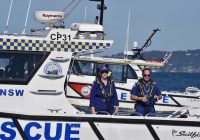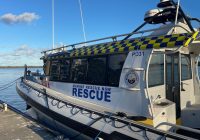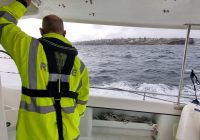Sydney recently played host to a significant event in the global maritime search and rescue (SAR) calendar: the International Maritime Rescue Federation’s (IMRF) Women in Search and Rescue training course and IMRF Australia Regional Seminar. The IMRF and Marine Rescue NSW partnered to deliver both events with outstanding success. Their combined efforts, supported by an exceptional team of staff and volunteers, ensured everything ran seamlessly. Over five intensive days, the combined program delivered a powerful message about the future of maritime rescue, one where diversity, innovation, and international collaboration drive safer seas.
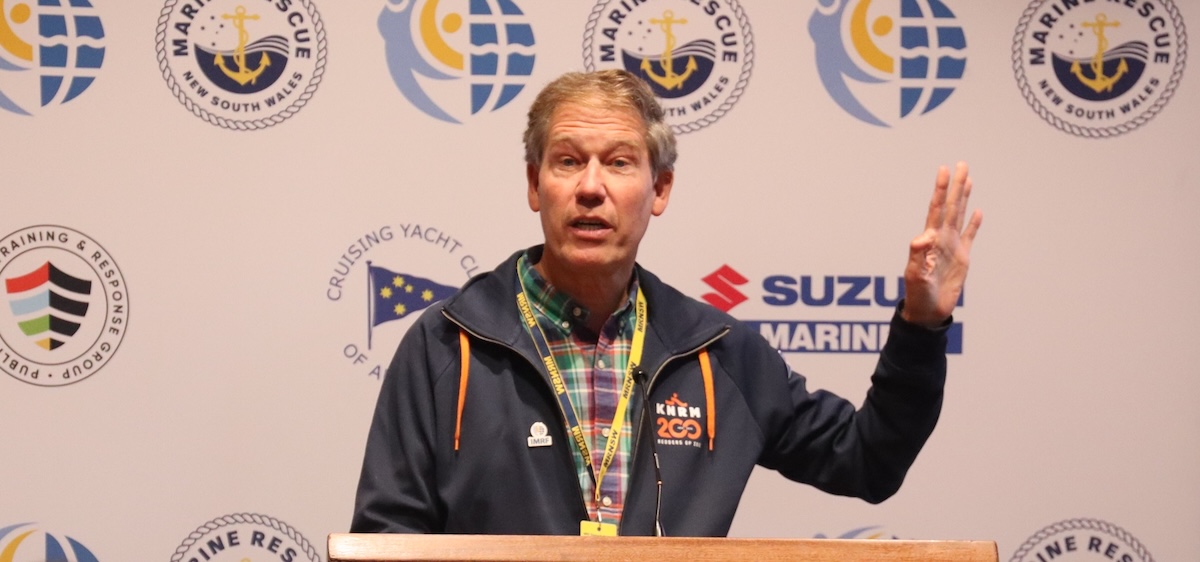
IMRF Chair and KNRM CEO Jacob Tas
The two events brought together a remarkable mix of participants and speakers. Fifteen women from eight countries took part in the Women in SAR course, while the regional seminar welcomed more than 150 delegates representing leading maritime safety agencies, technology innovators, and rescue organisations. Together, they explored strategies to strengthen search and rescue capabilities in an evolving maritime landscape.
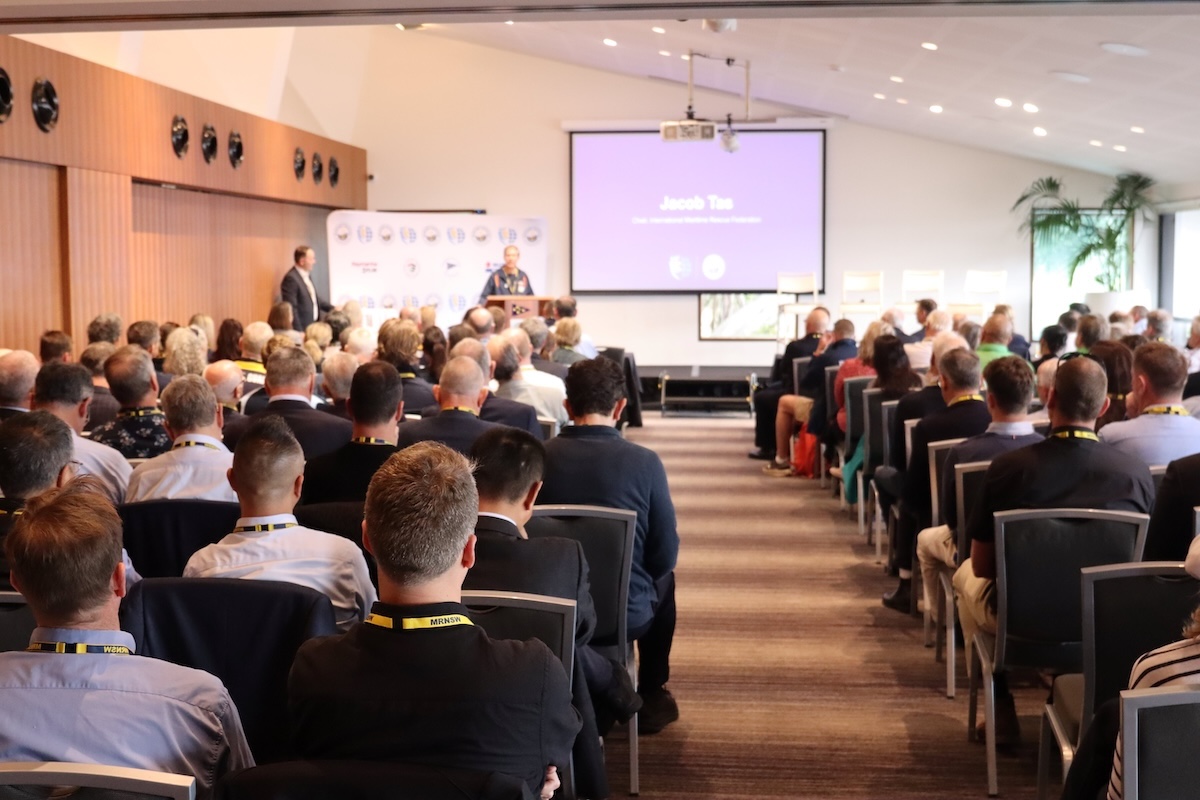
150 guests attended the two-day IMRF Australia Regional Seminar at the Cruising Yacht Club of Australia
A Global Initiative Reaches New Shores
The Women in SAR program was launched by IMRF in June 2019 with a clear mission: to increase the representation of women in maritime roles and raise the profile of women working in SAR. Although women have always played an important role in maritime safety, leadership positions and frontline operational roles remain largely male-dominated. Women in SAR seeks to change that by providing structured training, leadership development, and international networking opportunities.
This year marked the third time the course has been held, and the first time outside the northern hemisphere. For Marine Rescue NSW, it was an opportunity to showcase both its operational expertise and its commitment to diversity and inclusion. The training was hosted at Marine Rescue Middle Harbour and the Australian Institute of Police Management in Manly, combining classroom-based leadership development with practical on-water exercises.
Among the 15 participants were two Marine Rescue NSW volunteers: Alison Cameron-Brown from Port Macquarie and Sonia Teston from Merimbula. Representing their local units on this global stage was an honour and a responsibility they embraced wholeheartedly.
For three days, participants immersed themselves in a mix of theoretical and practical modules designed to build confidence and capability in operational roles. The course focused on leadership, communication, and decision-making under pressure, critical skills for anyone commanding a SAR mission. For those already serving as coxswains or aspiring to that role, it offered hands-on experience in mission planning, vessel handling, and team coordination during high-pressure scenarios.
On the Water and In the Classroom
While the classroom sessions provided a foundation in leadership and operational planning, the real test came on Sydney’s waters. Participants boarded Marine Rescue NSW vessels for practical exercises, including a simulated offshore search and rescue operation off Sydney Heads. This scenario-based training replicated the complexities of real-world missions, from navigation and search patterns to teamwork and communication under stress.
The practical component not only honed technical skills but also reinforced the confidence required to take command. It was a reminder that maritime rescue is about much more than boats and equipment, it’s about leadership, composure, and the ability to make the right decisions when lives are on the line.
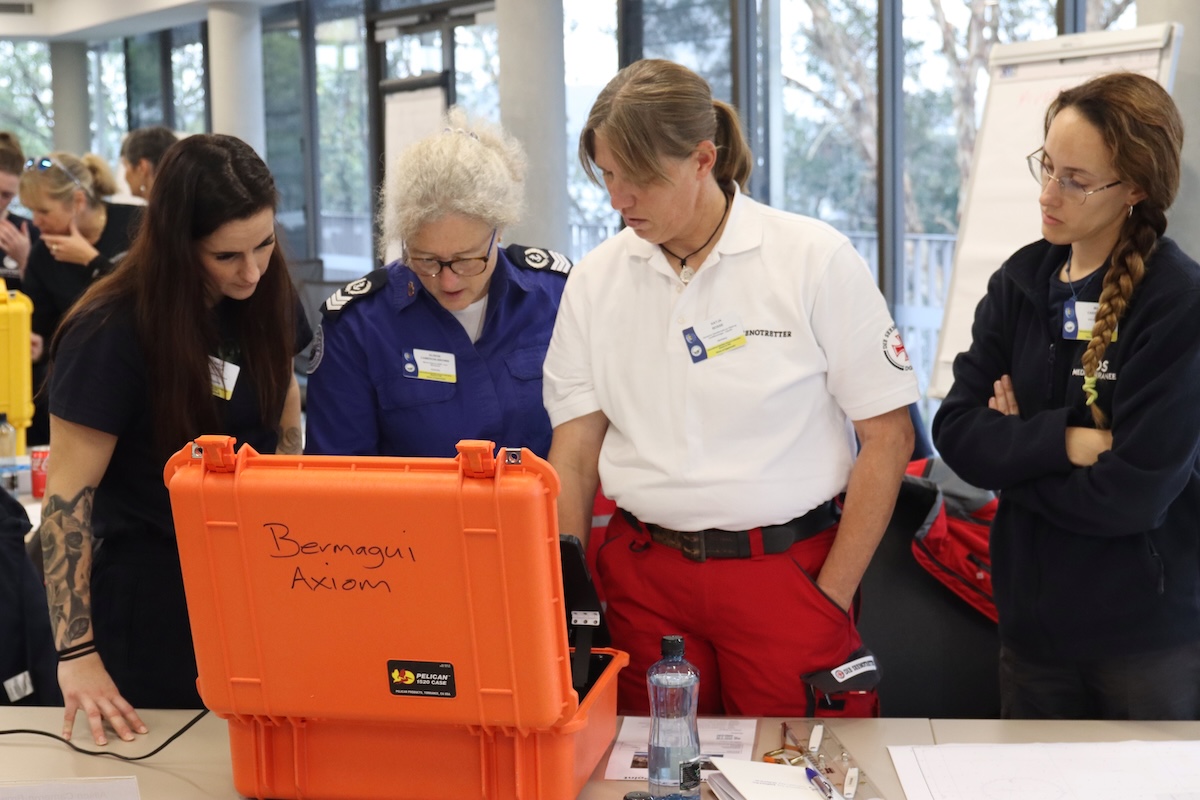
Marine Rescue Port Macquarie Deputy Unit Commander Alison Cameron-Brown during the classroom session
A Regional Forum for the Future of SAR
Following the Women in SAR course, participants joined delegates at the IMRF Australia Regional Seminar, hosted at the Cruising Yacht Club of Australia, Darling Point. The seminar was an equally significant component of the week, bringing together 150 representatives from Australian and international agencies, as well as private-sector partners.
Over two days, speakers and delegates examined a range of critical topics shaping the future of maritime search and rescue. These included mass rescue operations, adapting to new boating technologies, and the challenge of integrating sustainability into SAR operations. Other sessions focused on medical factors affecting survival at sea, the rise of electric propulsion and associated risks such as battery fires, and the role of private-sector innovation in training, vessel design, and technology.
Industry leaders and experts provided invaluable insights. Among the key contributors were Kaylene Dale, CEO of the Australian Maritime Safety Authority (AMSA), IMRF CEO Caroline Jupe, and senior representatives from Germany, Sweden, Finland, and China’s rescue organisations. These global perspectives offered delegates a unique opportunity to compare operational models, share lessons learned, and identify areas for collaboration.
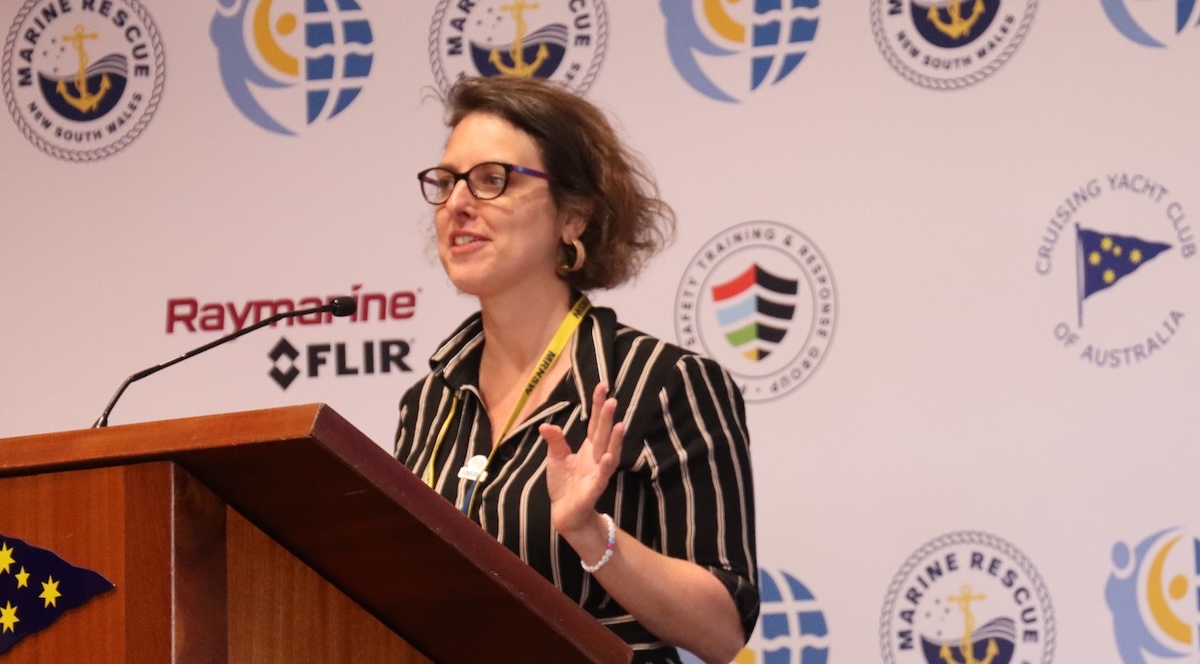
IMRF CEO Caroline Jupe
A particularly compelling session featured Australian surfers Elliott Foote and Steph Weisse, who recounted their ordeal of being lost at sea for 36 hours in Indonesia after their boat capsized during a remote surfing trip. Their story highlighted the unpredictable nature of the ocean and underscored the importance of maintaining strong, well-resourced SAR networks capable of rapid response.
Why Women in SAR Matters
One of the most powerful outcomes of the week was the visibility and recognition given to women in maritime search and rescue. Programs like Women in SAR do more than provide technical training, they create pathways for women to step into leadership roles, inspire others, and help shape an inclusive culture within traditionally male-dominated environments.
For volunteers like Alison Cameron-Brown and Sonia Teston, participation in this program represents not just personal achievement, but also progress for their local Marine Rescue units. They return with new skills, broader perspectives, and a network of international peers, benefits that will extend beyond individual careers to strengthen organisational capability and community safety.
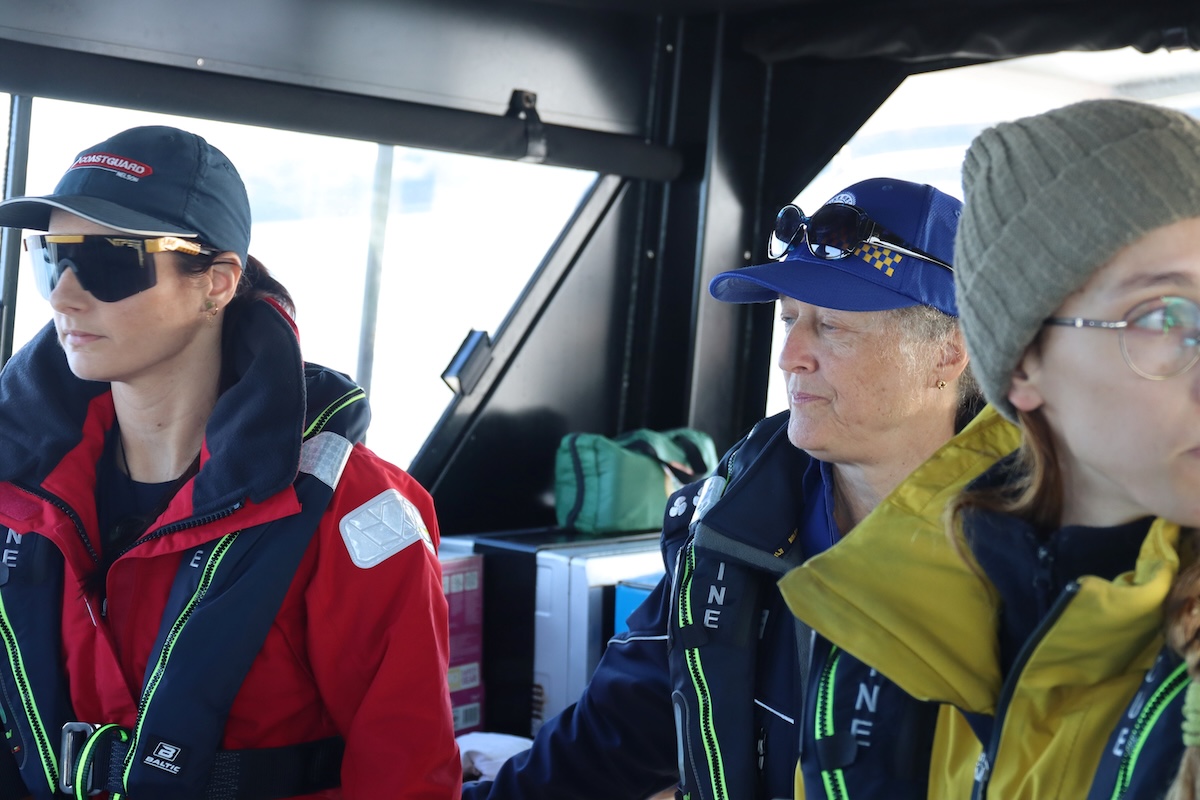
Marine Rescue Port Macquarie Deputy Unit Commander Alison Cameron-Brown (centre)
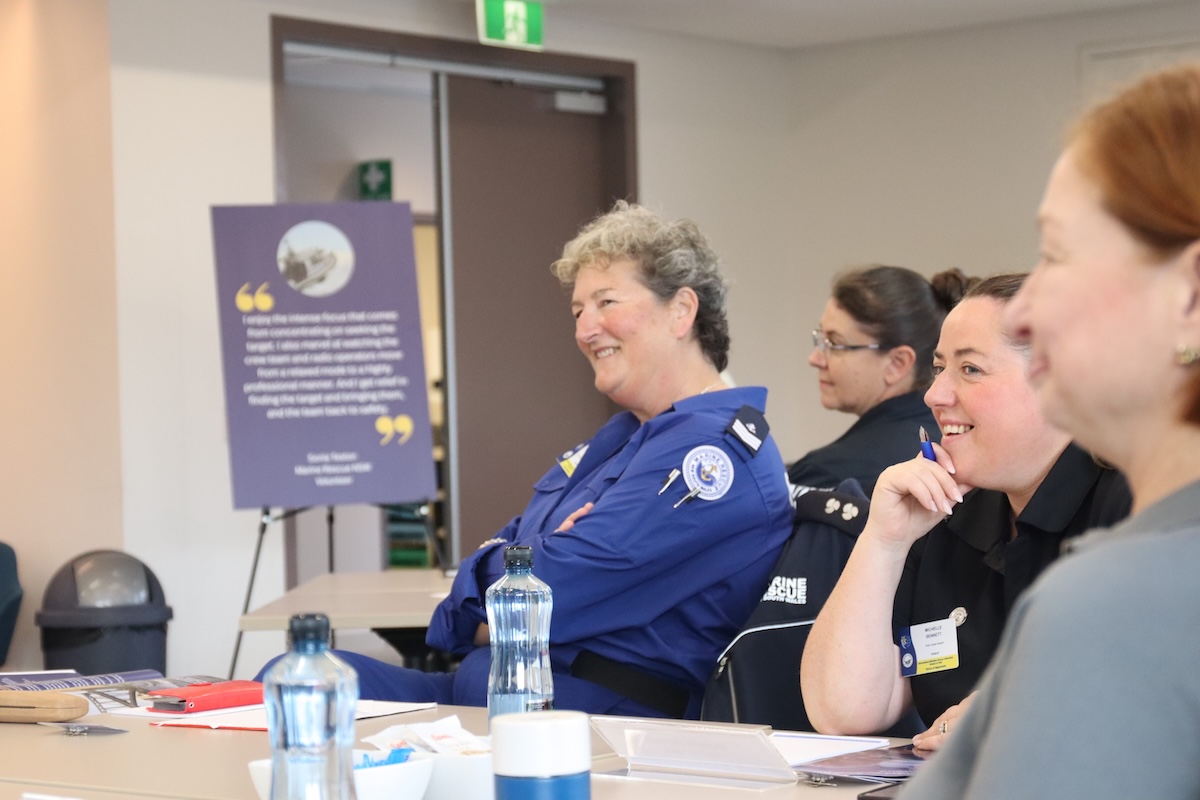
Marine Rescue Merimbula Deputy Unit Commander Sonia Teston during classroom discussion
Collaboration Across Borders
The seminar also reinforced the value of international collaboration in a sector where shared knowledge can save lives. Maritime safety challenges do not respect borders; nor should the solutions. By engaging with global partners, Australia ensures it remains at the forefront of best practice, technology adoption, and training innovation.
The combination of hands-on training and strategic discussion created a program that was both practical and visionary. It addressed immediate operational needs while looking ahead to the long-term trends that will shape the maritime environment, climate change, sustainability, and the impact of emerging technologies.
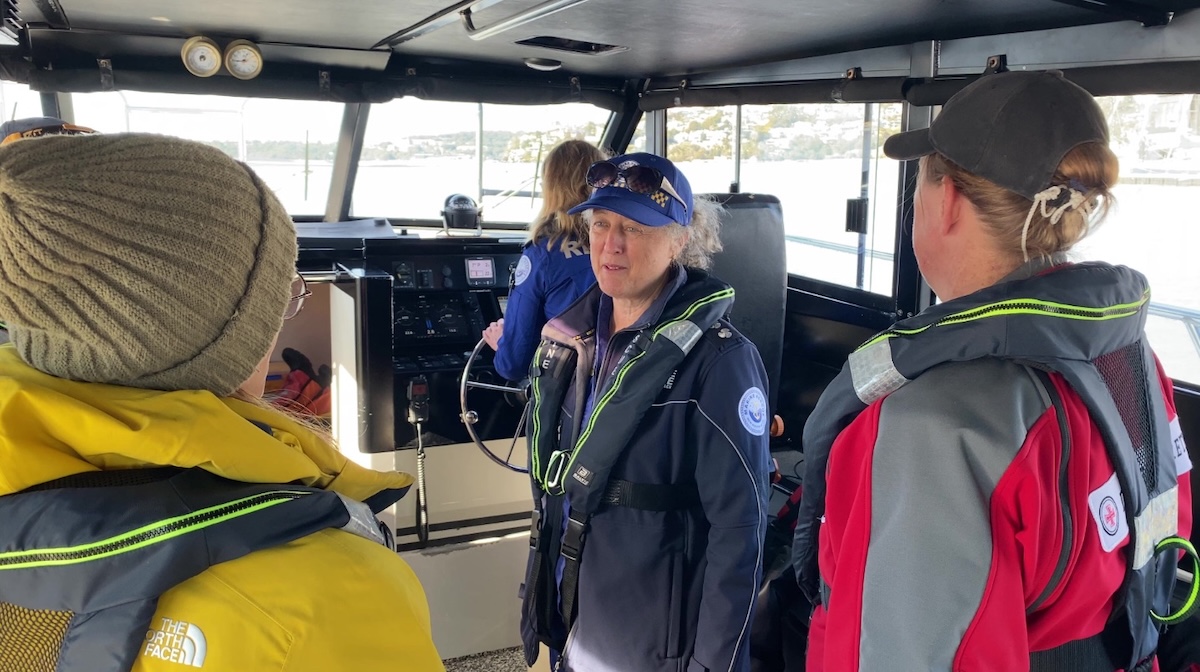
Marine Rescue Port Macquarie Deputy Unit Commander Alison Cameron-Brown during the on water exercise
A Benchmark for Future Initiatives
The successful delivery of this combined program sets a benchmark for future initiatives in the Asia-Pacific region and beyond. For IMRF, it demonstrates the growing reach and relevance of its Women in SAR program. For Marine Rescue NSW, it highlights the organisation’s commitment to leadership development, gender diversity, and international engagement.
Events like these remind us that maritime safety is not static; it evolves with technology, environmental pressures, and social change. Ensuring that search and rescue organisations remain agile and inclusive is critical to meeting these challenges.
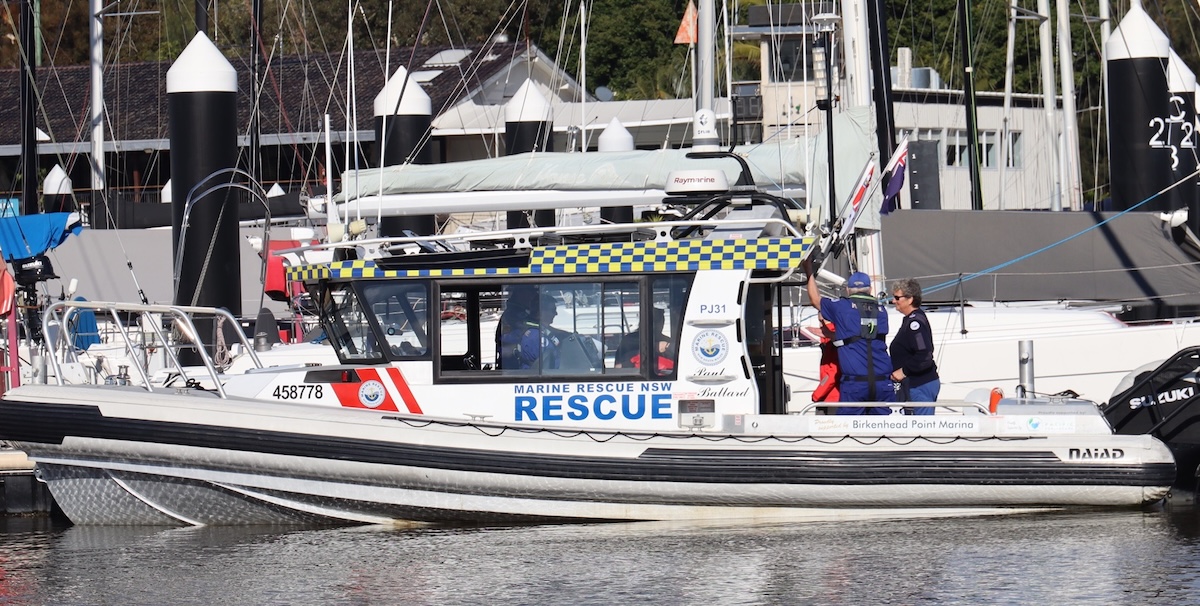
Sonia Teston on board Marine Rescue NSW vessel Port Jackson 31 following the on water exercise
As the IMRF Women in SAR initiative continues to expand, and as global SAR networks strengthen through collaboration, the outlook for safer seas becomes brighter. For the women who participated in this year’s course, and for the delegates who contributed to the regional seminar, Sydney 2025 will be remembered as a turning point, where ideas, experiences, and opportunities converged to chart a safer, more inclusive future for maritime rescue.






